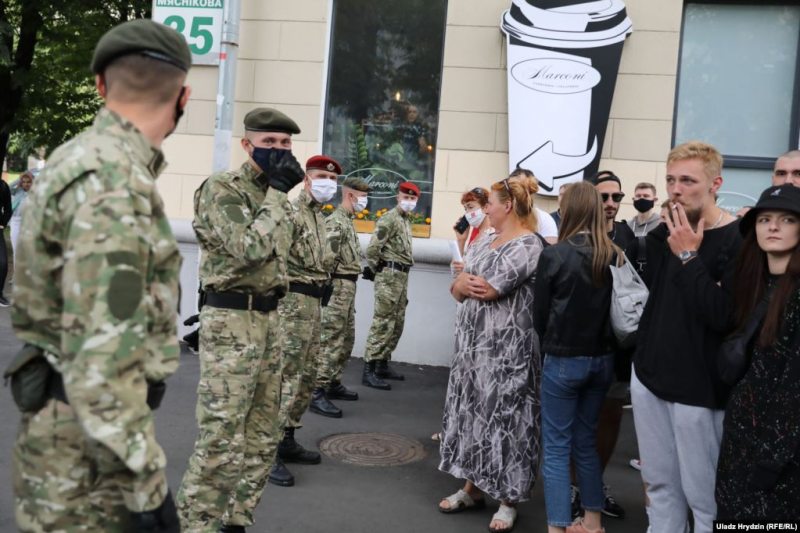Amnesty International: Armed forces have no business in dealing with protests

On 24 July, Belarusian President Alyaksandr Lukashenka publicly stated that he was prepared to use the Armed Forces to “restore order” and put down street protests and demonstrations. This remark was made in the context of an upcoming presidential election on 9 August, in which the incumbent will be seeking re-election for his sixth term. It follows weeks of mass protests against electoral violations across the country, all of them peaceful except those that were brutally dispersed by the authorities which resulted in isolated incidents of police-provoked violence.
For years, the Belarusian authorities have unduly restricted and suppressed the right to freedom of peaceful assembly, and actively deployed the police to disperse peaceful rallies and arrest their participants. The scale of protests across Belarus this year, and the reports that many police officers are reluctant to use force against peaceful protesters, and that some may sympathize with their demands, have caused concerns that the military may be deployed to prevent and put down protest rallies. In this context, President Alyaksandr Lukashenka’s pronouncement regarding the country’s Armed Forces, of which he is the Commander-in-Chief, appears as a covert threat to his political opponents and to all people with dissenting views in Belarus.
International human rights law guarantees everyone the right to freedom of peaceful assembly. The state has an obligation to ensure safety and security of peaceful protesters, notwithstanding their political opinion or affiliation, and to facilitate their exercise of the right. A mere anticipation of disruption may never be a justification for restricting or dispersing an assembly. Even isolated violent incidents, should these occur, should be dealt with proportionately, so that participants uninvolved in violence can continue to exercise their right to freedom of peaceful assembly.
Temporary involvement of the armed forces in policing assemblies is permissible only in the most exceptional circumstances based on a clear needs-based assessment as to their added value in a concrete situation. Military forces are not designed and set up for carrying out law enforcement functions. These functions are fundamentally different from the ordinary “fight-the-enemy” approach military forces are used to in the conduct of hostilities. To be deployed for policing assemblies, armed forces must be properly instructed, equipped, and trained to carry out that function in a lawful, human rights compliant manner. In fulfilling their tasks, they are bound by the legal framework applicable to law enforcement, including international and domestic human rights law. Their personnel remain fully accountable for their actions, including use of force.
There is no perceivable need for the involvement of the Armed Forces in policing in Belarus, while the suggestion that they may be deployed in the context of the ongoing overwhelmingly peaceful protests is evidently intended to intimidate those exercising their right to freedom of peaceful assembly. Military presence in the streets where people intend to exercise their right to peaceful assembly serves as a deterrent, and as such—as an obstacle to the exercise of this right even if the troops do not engage with the protesters as such.
Promising to deploy the army against political opponents is a reckless, irresponsible step that could result in a tragedy with significant human rights violations. Belarussian authorities should unequivocally reject such ideas and instead ensure that police forces are used for legitimate purposes and effectively protect, not obstruct, the exercise of the right to freedom of peaceful assembly, in accordance with international law.
Source: amnesty.org

